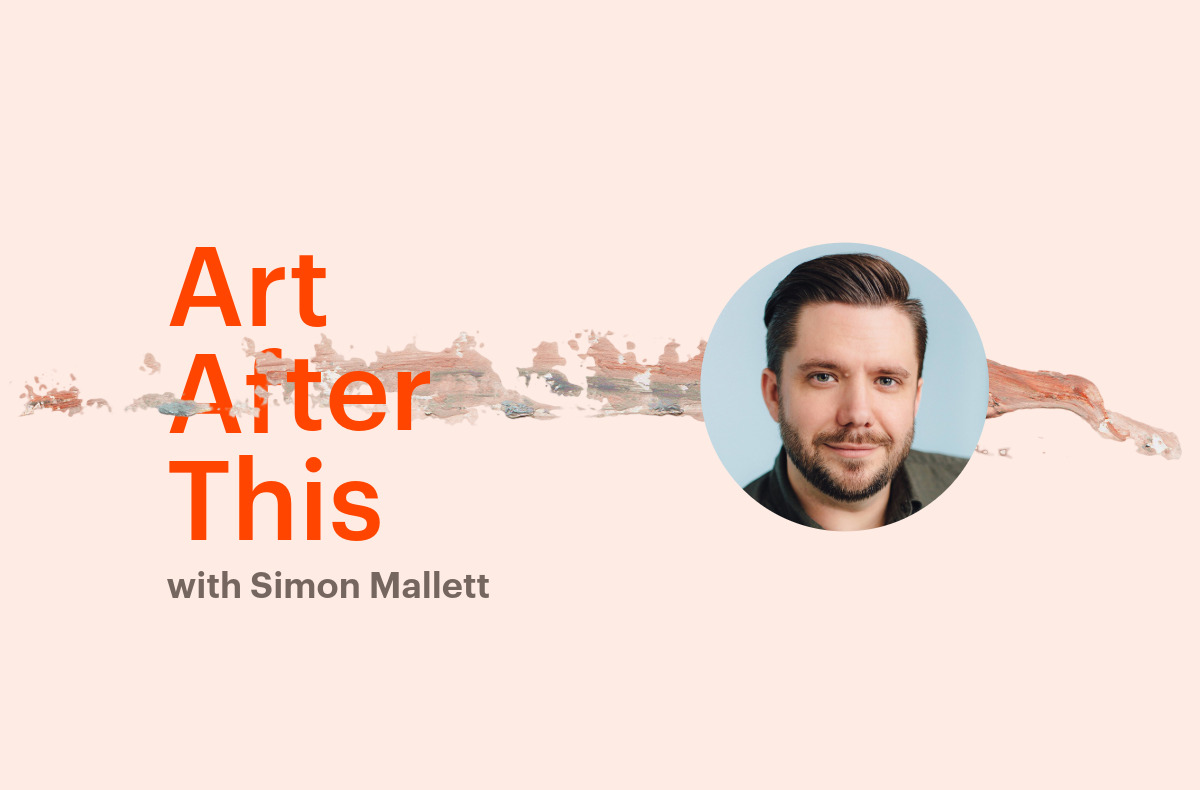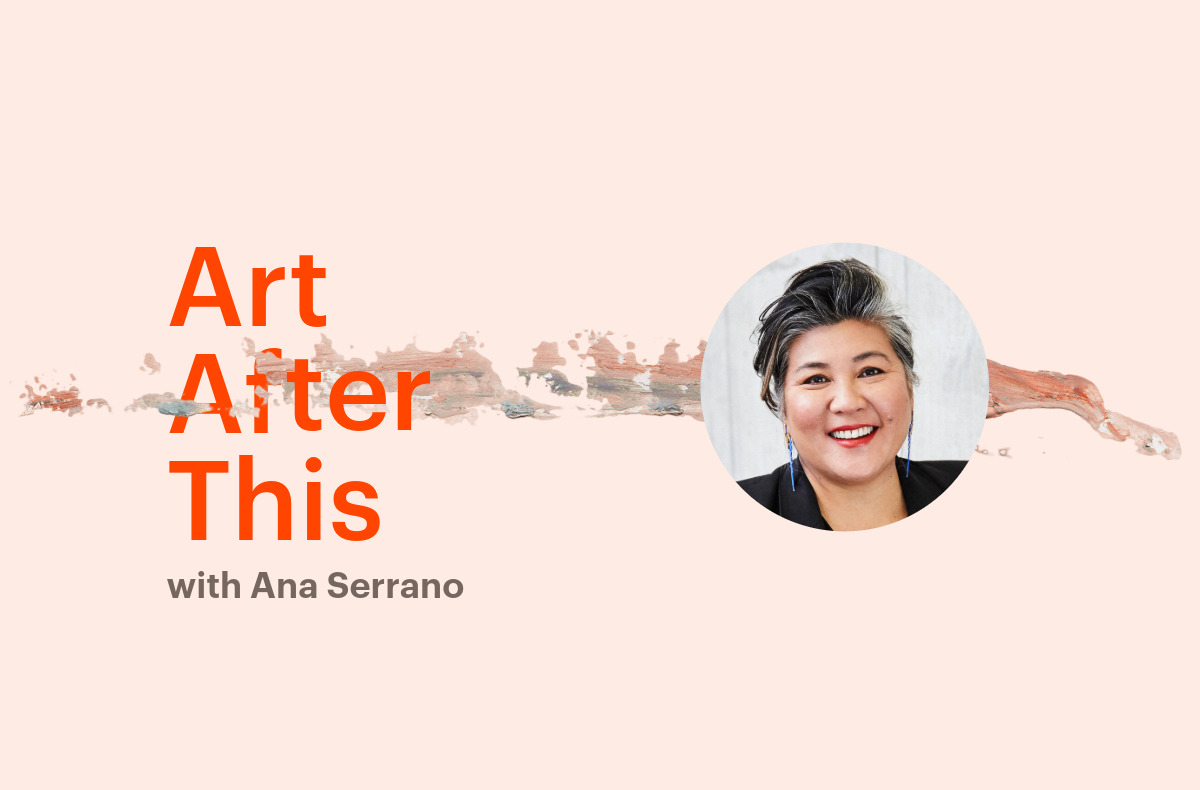By David Maggs, Metcalf Fellow on Arts and Society
Simon Mallett enjoys an eclectic career in Canada’s arts world. Anyone who has enjoyed late nights with him around a table knows of his jaw-dropping skills as a magician, although he is more commonly known in Western Canada as a theatre maker, fresh off directing The Da Vinci Code with Vertigo Theatre in Calgary. His day job? Executive Director of the Rozsa Foundation, a private foundation that bolsters arts management and leadership in Alberta. Following the release of Massey in a Moment of Decline, I wanted to take a more national pulse on cultural policy across the country and thought Calgary would be a good place to start.
Thanks for joining us Simon. Tell me, where did this arts journey begin for you and how did it end up in Calgary?
I’m from Leicester, England originally, but we moved around when I was a kid before landing in Richmond Hill, north of Toronto. I did a theatre degree in Guelph with the intention of honing my skills as a magician but encountered the likes of Judith Thompson and Guillermo Verdecchia and got a taste of the political and social change potential of the form. I was hooked. I went to the University of Calgary for a Masters in directing, and from there founded Downstage Theatre, driven by a vision of making theatre around fundamental questions of: Why this? Why here? Why now?
Having experienced life as an arts leader and now supporting the sector strategically through the Rozsa Foundation, what felt different switching roles?
I think I entered with a limited idea of philanthropy — thinking mainly of giving out grants. Quickly, I realized what we could do at the Rozsa Foundation was broader, involving advocacy, building organizational capacities, and addressing systemic issues. Rozsa Foundation acts more like an arts service organization offering strategic support for the sector. Instead of focusing on individual productions like I did at Downstage, the foundation tries to address big questions: What critical capacities are needed for emerging arts leaders? What are the advocacy messages we’re using? How can we positively impact the sector most effectively?
There’s a lot of talk about Western alienation these days. From your vantage point in Calgary, how real is this?
It’s tricky to know for sure, because I live in a city that leans more progressive politically, and my social circles consist largely of like-minded, progressive individuals. So in my daily interactions, Alberta separatism feels absurd. Yet, outside urban centres, or even in the suburbs, the sentiment is real. You only need to look at the recent provincial elections to see a stark divide between urban and rural voters. So as much as this reads as an East-West thing nationally, it’s also an urban-rural divide here on the ground.
Economically, there’s frustration over equalization payments — what Alberta pays versus what it receives. This narrative overlooks many nuances and complexities involved, of course, but that doesn’t temper frustrations. There’s also a deep cultural-political dimension. Provincial politics in Alberta haven’t aligned with federal politics for years, so the rhetoric and policies from Ottawa — especially around themes like climate change — are often perceived as threats to Alberta’s economic backbone and identity. Generally, there’s a widespread feeling of having no voice in national conversations and that fuels a broader sense of alienation. And there are a lot of Albertans who work in the energy sector which brings economic prosperity to Canada whose work is looked down upon by the rest of the country, and that doesn’t help you feel like you belong.
How much does that translate into how its cultural sector is feeling?
I’d say pretty strongly. Historically, Alberta has been underfunded by the Canada Council — and that’s not just perception. Council has acknowledged that and taken steps to address it. When Michelle Chawla took the job at Council, her first trip was here, to Alberta. So they’ve met that challenge head on and are actively working on it, to their credit. But it’s not just financial — it’s about feeling unseen and unimportant. There was a recent Globe and Mail article about meanwhile lease programs in the arts that all but ignored the significant project happening in Calgary. That reinforces broader provincial grievances, echoing the larger feelings of being overlooked or undervalued nationally.
Socially, conservative perspectives do exist within our cultural organizations, but they often remain silent, fearing exclusion or backlash. There’s this implicit assumption in cultural spaces that everyone sees the world from a progressive, leftist viewpoint, and that stifles genuine dialogue. It creates echo chambers. Everyone in Canada’s cultural sector assumes everyone around us agrees on certain issues and then we’re shocked when elections or public debates reveal a vastly different reality out there.
But the risk isn’t just echo chambers, it isn’t just polarization — the risk is that our cultural sector becomes more and more disconnected from large parts of the population, precisely because we’ve excluded or silenced voices that don’t see the world the way we do. And I don’t think it’s always an active silencing on our part. Often, it’s a more passive process — our rooms are politically charged right now, so a difference of view doesn’t need to be told whether it’s welcome or not. Polarization often results from self-censorship, born from the fear of exclusion or unwantedness. But the result is the same: polarization deepens. When conservative perspectives aren’t expressed, given air, given respect in genuine dialogue, they tend to radicalize elsewhere, becoming increasingly oppositional.
What do you think it would take for cultural organizations to become more welcoming and inclusive of politically diverse perspectives?
We need genuinely inclusive approaches to dialogue, not token gestures. Arts leaders must intentionally create spaces where different views are openly welcomed and engaged with. That means stepping outside comfort zones and deliberately seeking to understand why someone might hold views different from your own.
In 2012, Downstage produced a show called Good Fences. We spent two weeks in residence in Longview, Alberta, exploring the relationship between energy and agriculture. The show was part of ATP’s Enbridge-sponsored playRites Festival, deliberately representing complex and differing perspectives, including conservative ones! The post-performance discussions were vibrant — not contentious, but certainly charged. People felt seen and heard, allowing for more meaningful, less polarized conversations. So that’s an experience that still resonates with me as I think about this challenge.
I hesitate to say every artist or organization must engage with politically diverse viewpoints, but there is a significant opportunity to do so. The arts have a unique power to bridge divides, creating shared experiences that foster empathy and social cohesion. If we avoid genuinely representing diverse perspectives, we miss an essential role the arts can play in healing the polarization that’s so evident across society.
Weirdly enough, amidst these discussions around how challenging national conversations have become, we’re thinking about nationhood more than ever. As you know, the great national strategy for culture in Canada is the Massey Commission, which many people feel has hit its expiry date. Is it time for a new one?
Yeah, I think we can agree it’s well past its expiry date. I hear the desire out there to rewrite the thing and know your feelings that the cultural sector isn’t ready. I’d go one step further and say that it’s the nation that isn’t ready. We need to redefine who we are as a country now, arrive at an understanding that can find traction with as many Canadians as possible before we move forward. Canada is just too fractured in our vision, our goals, and our values for a new Massey-style redefinition. So for the cultural sector to dive into this now, especially given its struggles to include conservative voices in active reflections about identity and culture? I think we risk deepening divides rather than bridging them if we do that. We can’t meaningfully advance without inclusive conversations, or we’ll merely reinforce the polarization we seek to overcome.
Looking forward, what do you see as the most pressing priorities or challenges the arts sector should focus on in the coming years?
I mean, I think it’s this question you raise. Are we making polarization better or worse? We all had a feeling that publicly-funded culture in Canada was going to have to face the music in a landslide Poilievre victory, stemming from the conservative perception of the sector as a bunch of cultural elites. So, the irony that Donald Trump might have helped spare us? Granted us this reprieve? We can’t waste that. The election was just a checkpoint, that perception is still out there.
As you point out, 41% of the country are ready to see some massive changes take place in terms of cultural institutions and cultural narratives in this country. The election didn’t stop that in its tracks, it just bought us some time. We need to use that wisely, we need to figure out how to bridge divides — that’s the most important thing for us to be doing right now. If the arts sector doesn’t proactively engage with this challenge, those fractures are just going to grow, and the music we have to face in the future will be even louder. So our work needs to consciously prepare the country for better conversations.
Great to talk to you Simon, thank you.
Always a pleasure, my friend.




